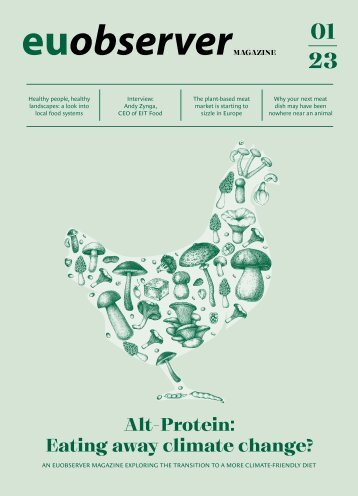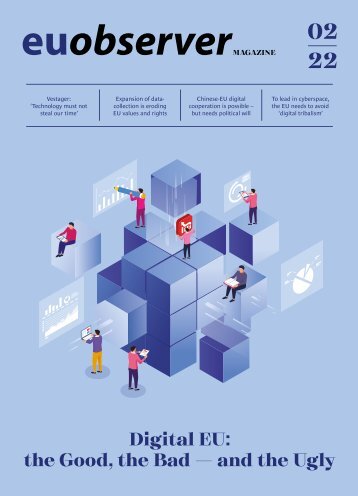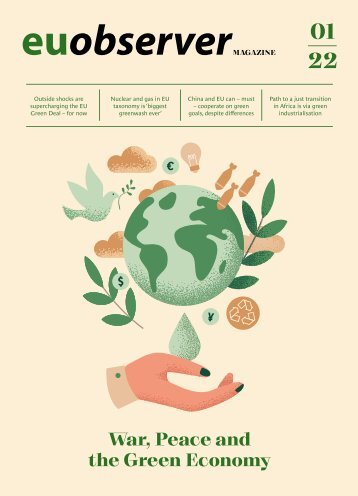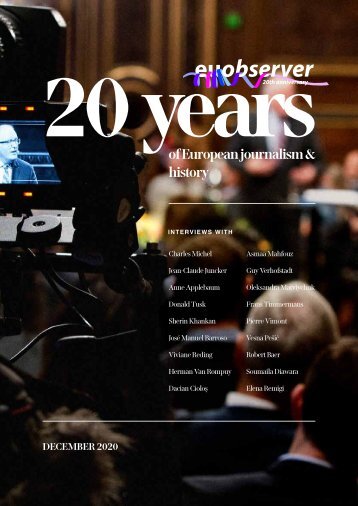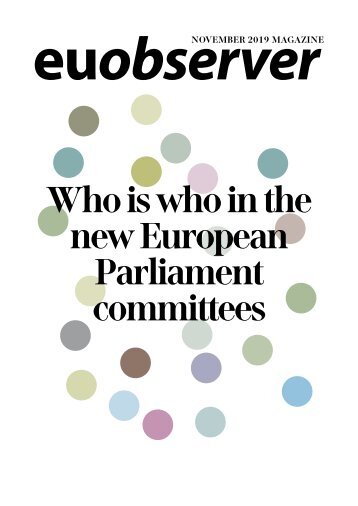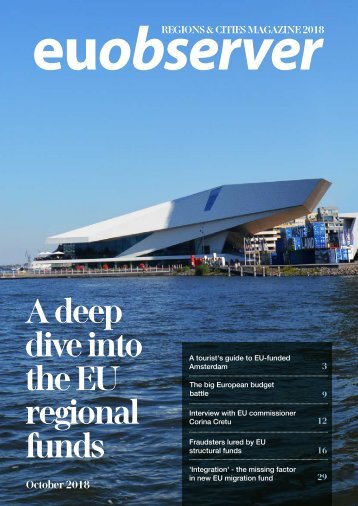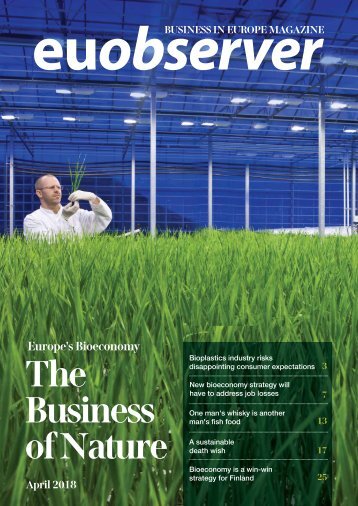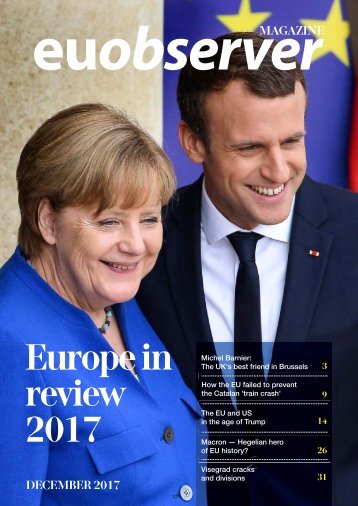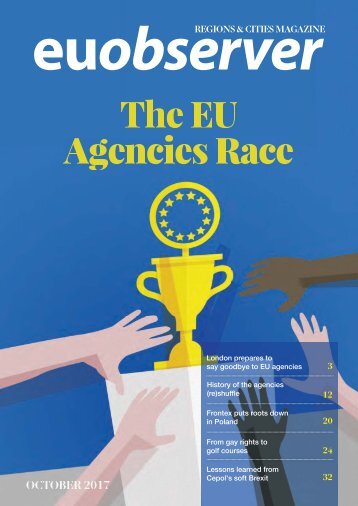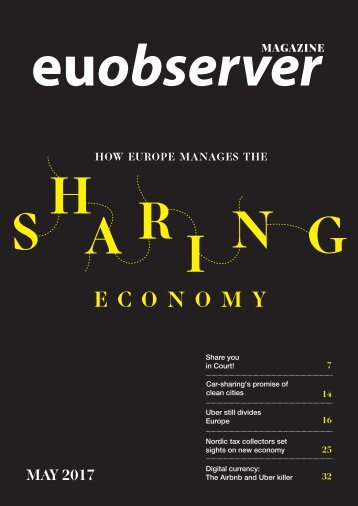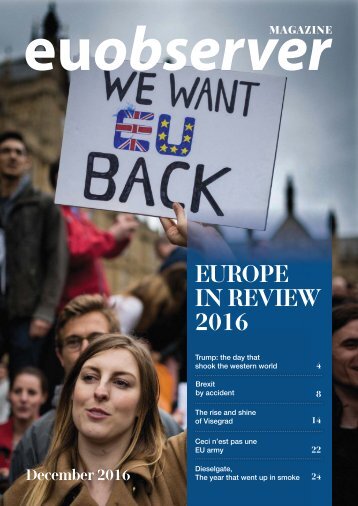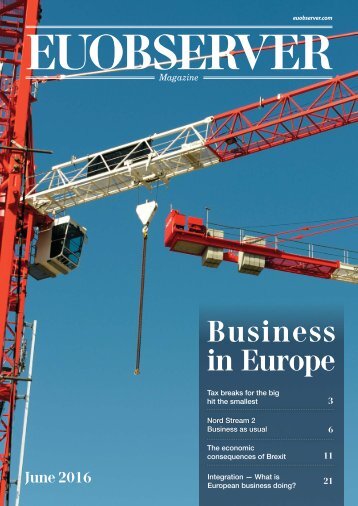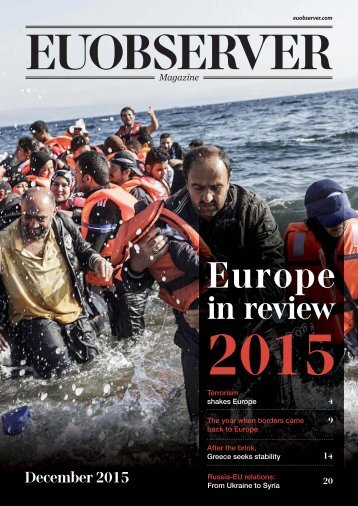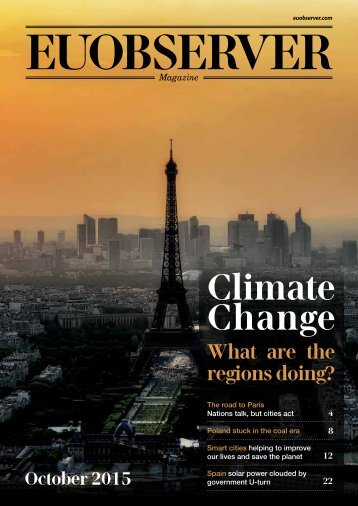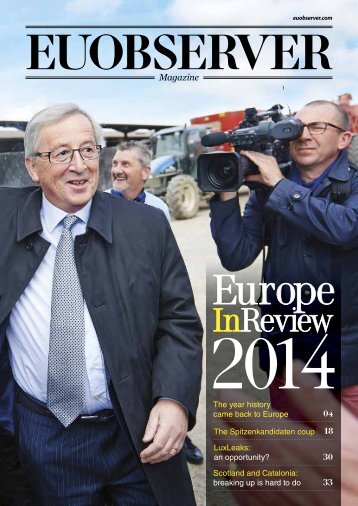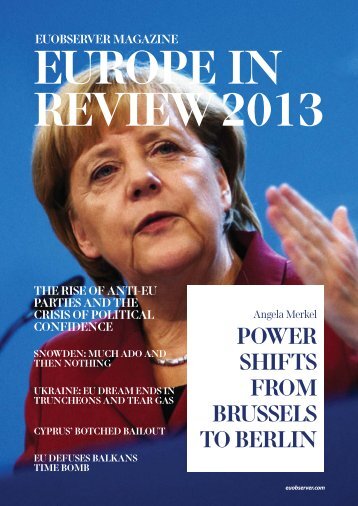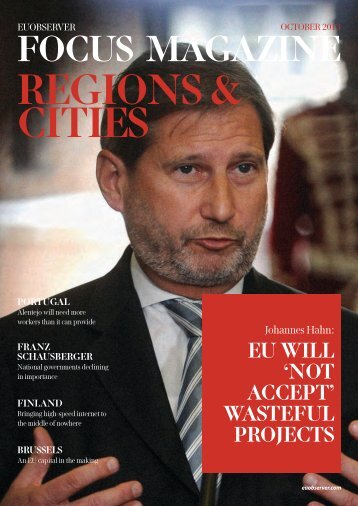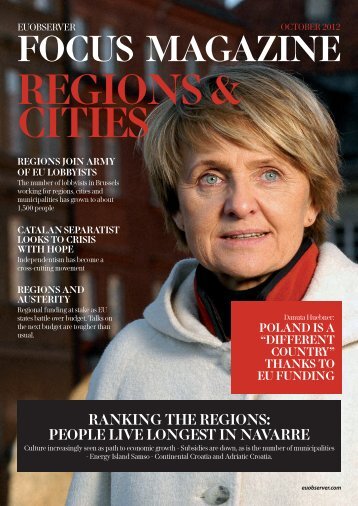Business in Europe
- Text
- Europe
- Union
- Commission
- Business
- Employment
- Smes
- Corporations
- Competition
- Antitrust
- Brexit
- Tax
- Trade
- Economy
- Industry
- Business
- Euobserver
must have been
must have been acknowledged to stay in Germany,” says Neumeister. come with us and have an internship. That does not work, they have to follow a certain process.” The apprenticeships are more demanding than the internships, for the company as well as for the refugee. They involve three years on-the-job training that qual- offering them in autumn this year. REFUGEES MUST COME WITH OPEN MINDS “The biggest issue is usually the language. You have to speak a very good German to work on the production side within ThyssenKrupp. You must be able to understand instructions due to safety issues,” Heike Neumeister explained. come with an open mind, she said. “Of course we are a bit different so they have to be open minded and motivated. We are very punctual and follow certain rules that are new to some of them and they have to be able to accept that we work this way,” she said. ThyssenKrupp and many other German companies are facing a potential shortage of skilled labour. “All the systems we develop now to qualify people, to integrate people, to get cultural training and all that time,” Neumeister said. The sudden task of integrating refugees into the organisation. “What the HR organisation is learning now is to speed up processes, because the refugee situation became very critical very fast – so we had to deal with it very workforce are on board and informed of the plans. “We have to communicate a lot and make these issues very transparent. We are offering these internships and apprenticeships additionally as we did not want 22 — BUSINESS IN EUROPE JUNE 2016
potential lack of skilled labour Photo: Stephan Mosel anyone to feel that something was taken away from them,” Neumeister said. “But actually only very few people respond negatively. And it helps that a lot of employees have direct contact to refugees, because then the image completely PATIENCE IS THE BIGGEST CHAL- LENGE Siemens, a technology and engineering conglomerate that employs 114,000 in Germany alone, was also among the initiators of Wir-Zusammen. six-week internship programme, which can potentially lead on to a six-month course in language and mathematics. “Without German language nothing works here,” the server. Companies and nations face a huge task to integrate the one million refugees who arrived in Europe in 2015. Photo: European Commission She said it was quite a challenge to get the internship programme started. Completely new contracts had to be developed, rules and regulations incorporated and new networks built between the public authorities, job and asylum centres. But now it goes much more smoothly and the intern- BUSINESS IN EUROPE JUNE 2016 — 23
- Page 1 and 2: euobserver.com Magazine Business in
- Page 3 and 4: TAX BREAKS FOR THE BIG HIT THE SMAL
- Page 5 and 6: made under the stewardship of EU co
- Page 7 and 8: 24-tonne steel pipes Photo: Nord St
- Page 9 and 10: yachts take part in European races
- Page 11 and 12: Headache for businesses, uncertaint
- Page 13 and 14: coughed up €2 million between the
- Page 15 and 16: Fund spokesman Thomas Sevang told E
- Page 17 and 18: IS THE‘CIRCULAR ECONOMY’ A REST
- Page 19 and 20: IN A CHANGING WORLD, IT’S EASIER
- Page 21: Integration - What is European Busi
- Page 25 and 26: REFUGEES WILL GIVE EU ECONOMY A BOO
- Page 27 and 28: The measures heightened fears that
- Page 29 and 30: Hello! Stay informed. Stay current.
- Page 31 and 32: Roughly 70 percent of the European
- Page 33 and 34: US president Barack Obama’s term
- Page 35 and 36: TTIP faces political and popular re
Inappropriate
Loading...
Mail this publication
Loading...
Embed
Loading...

